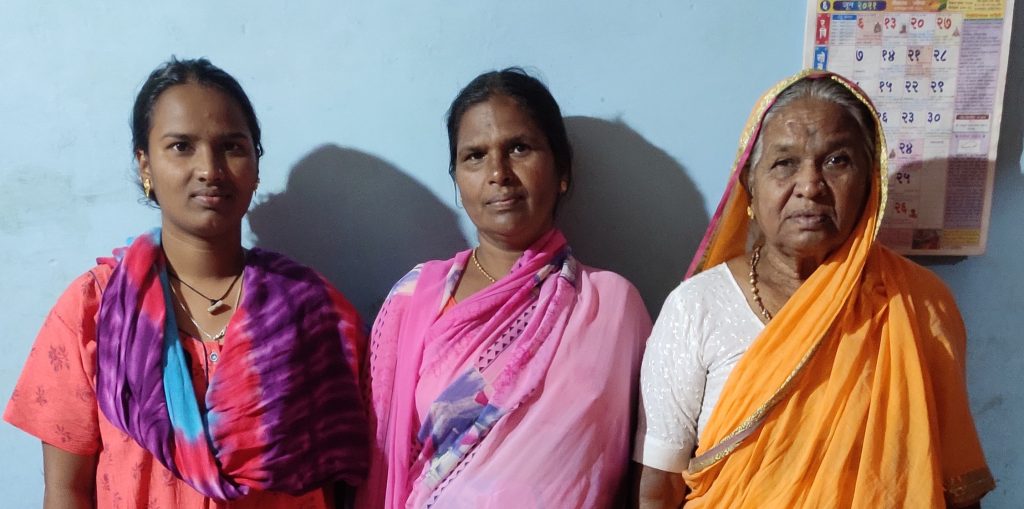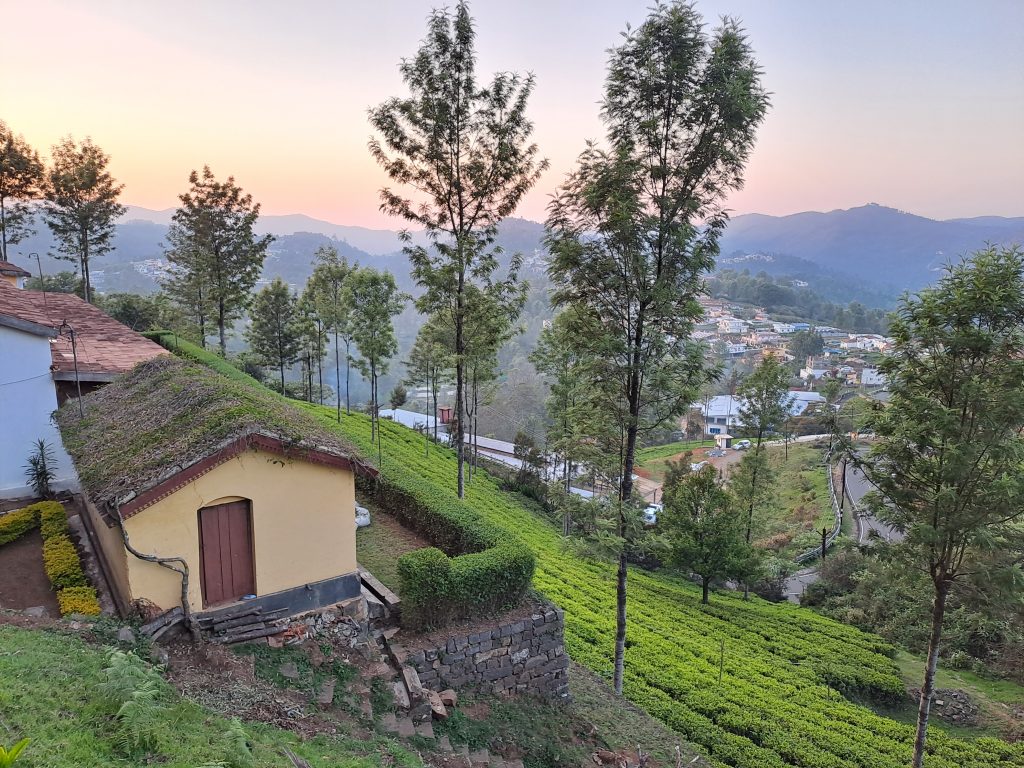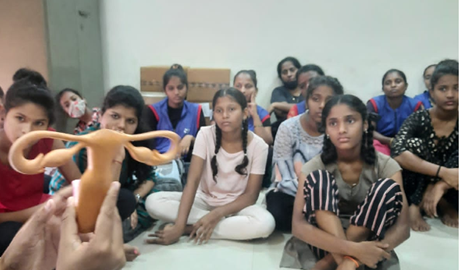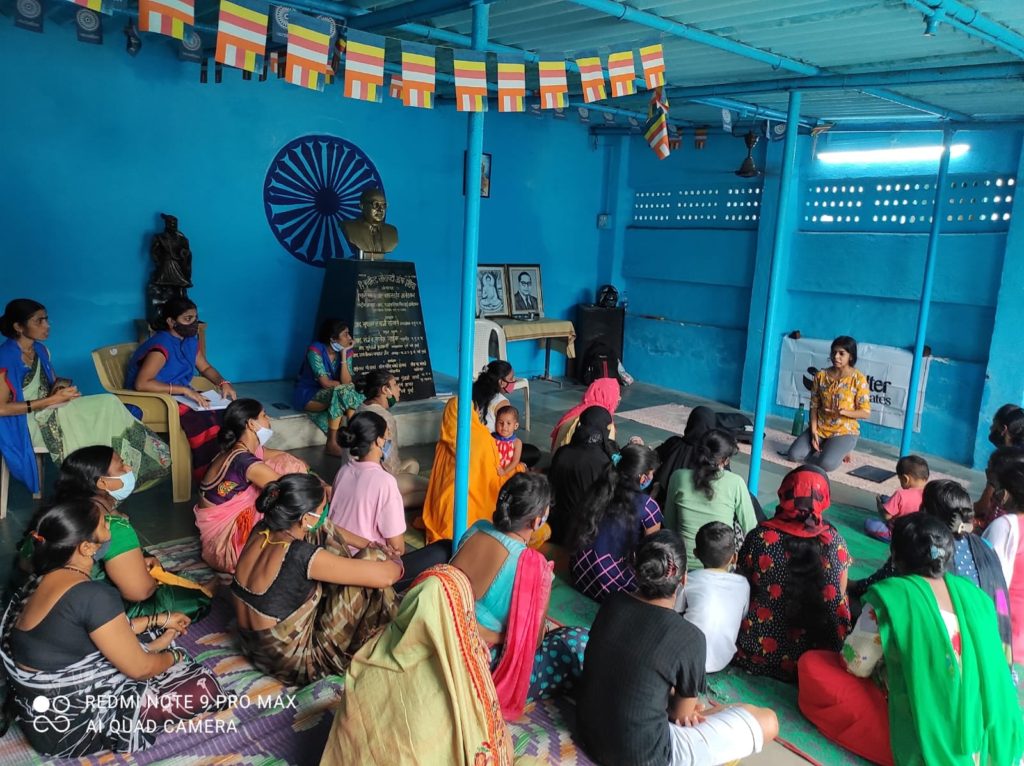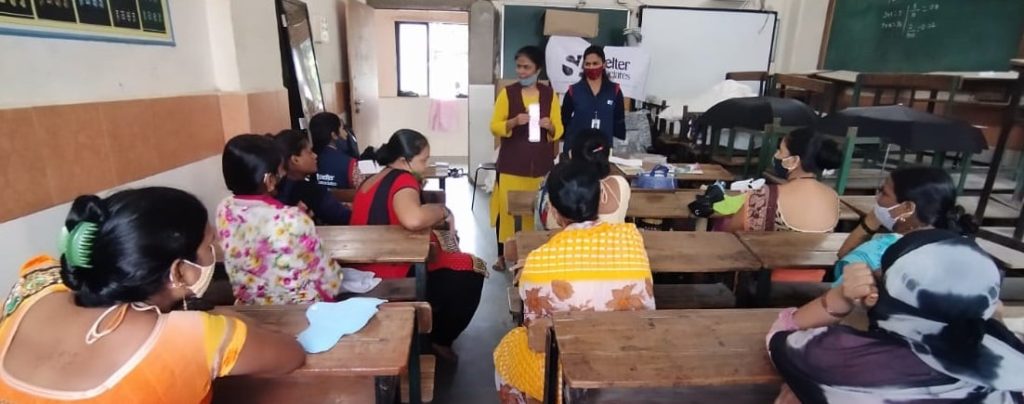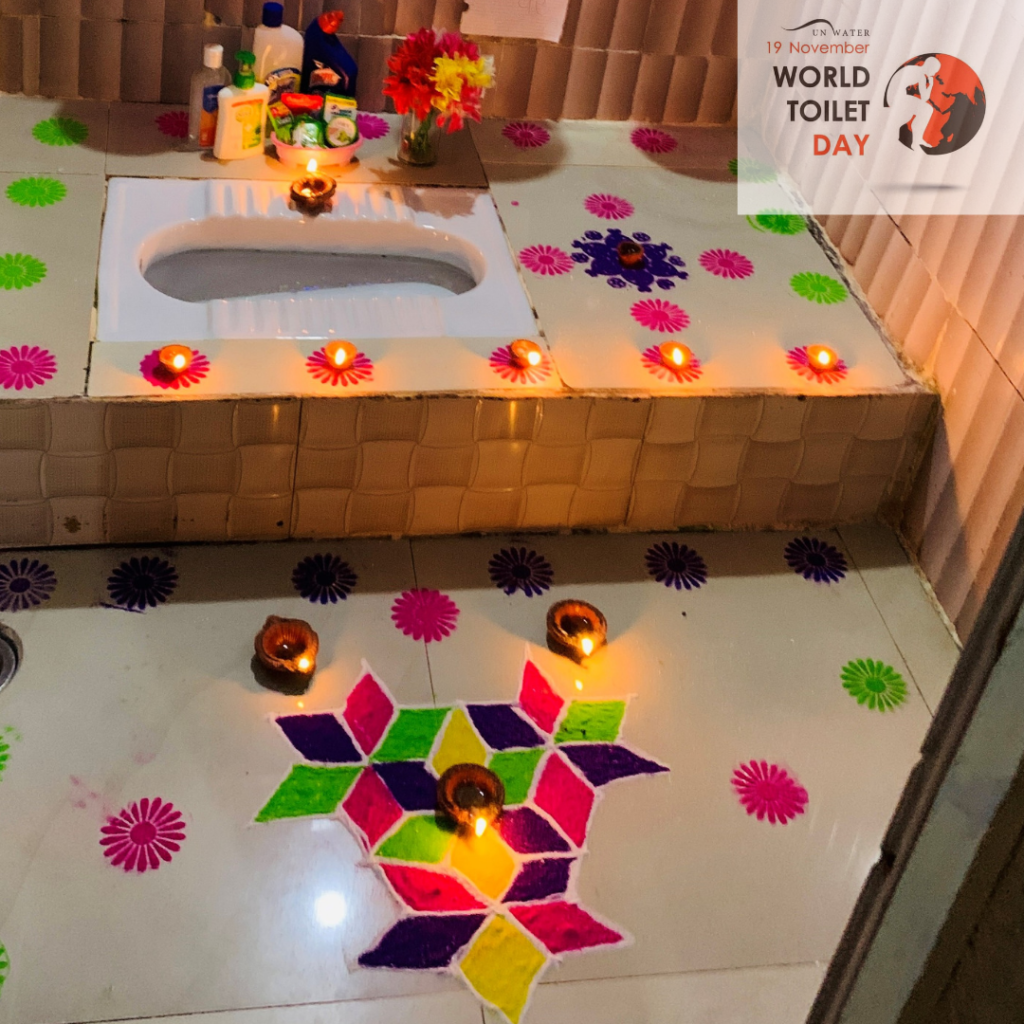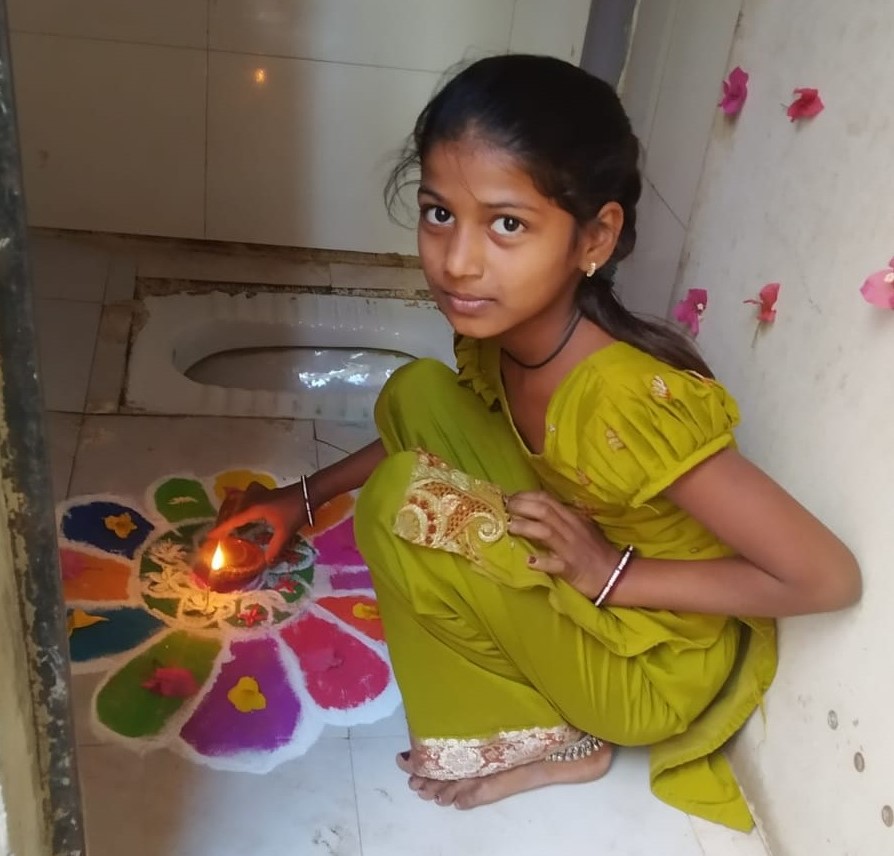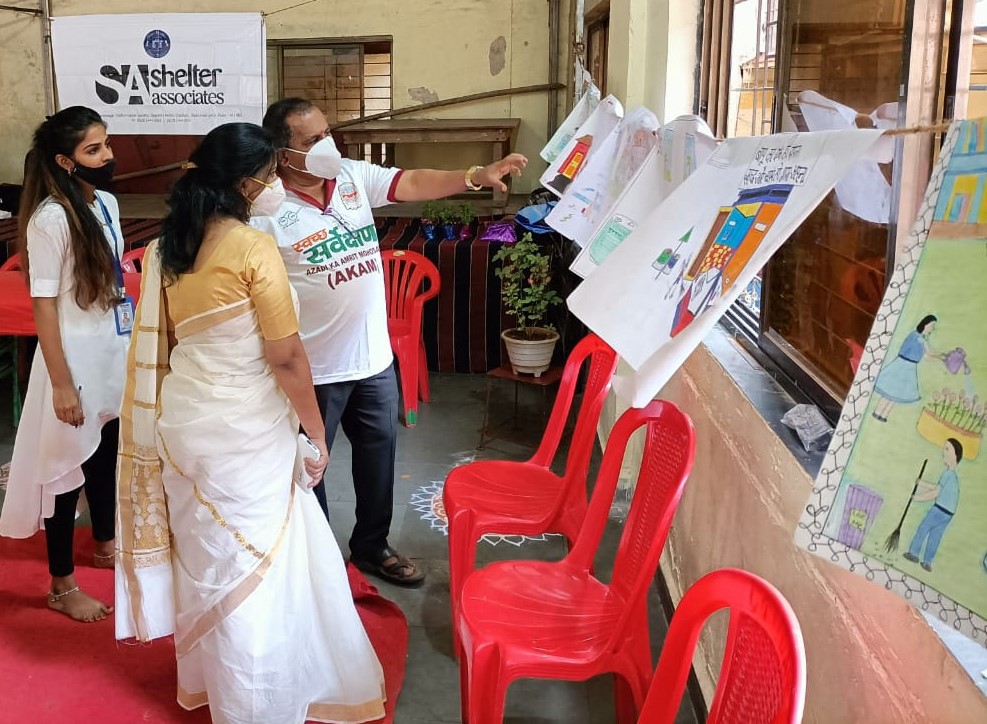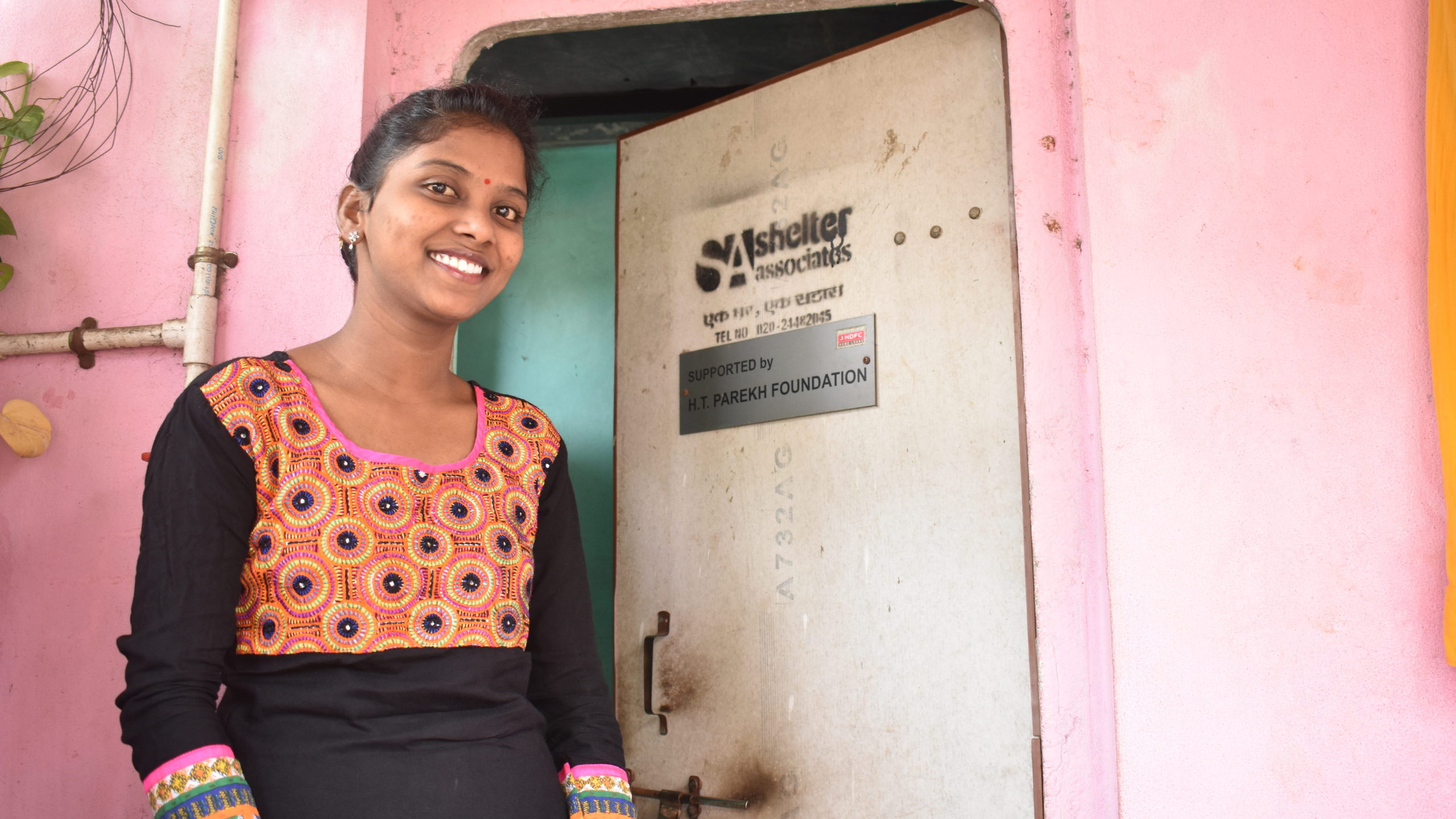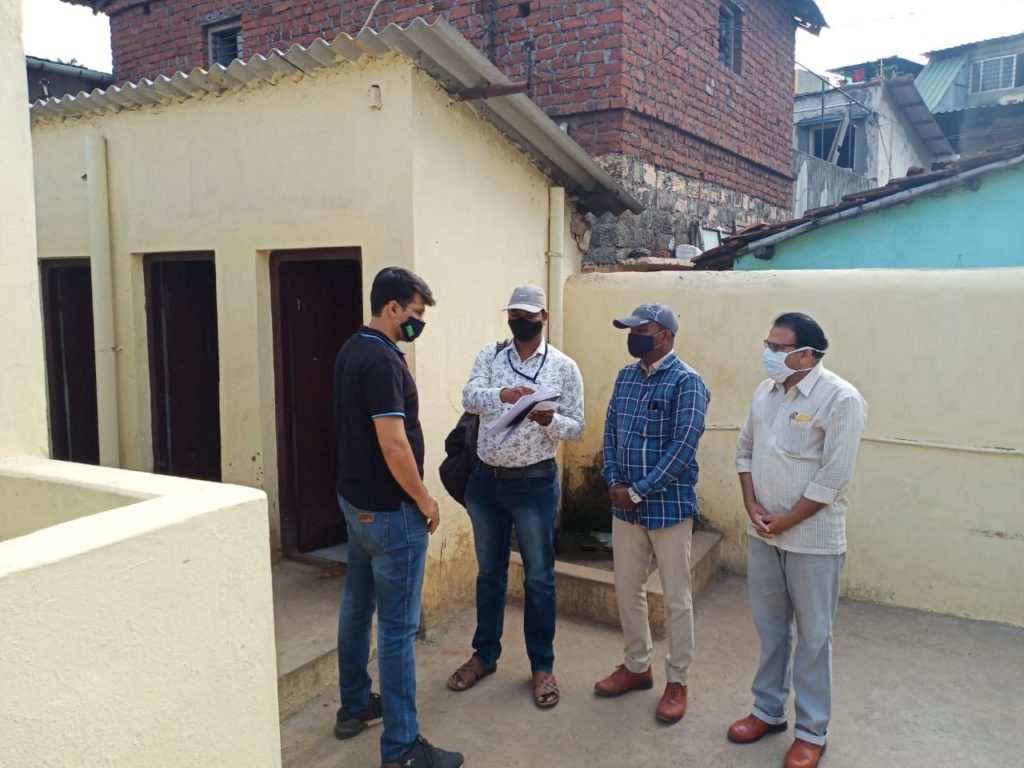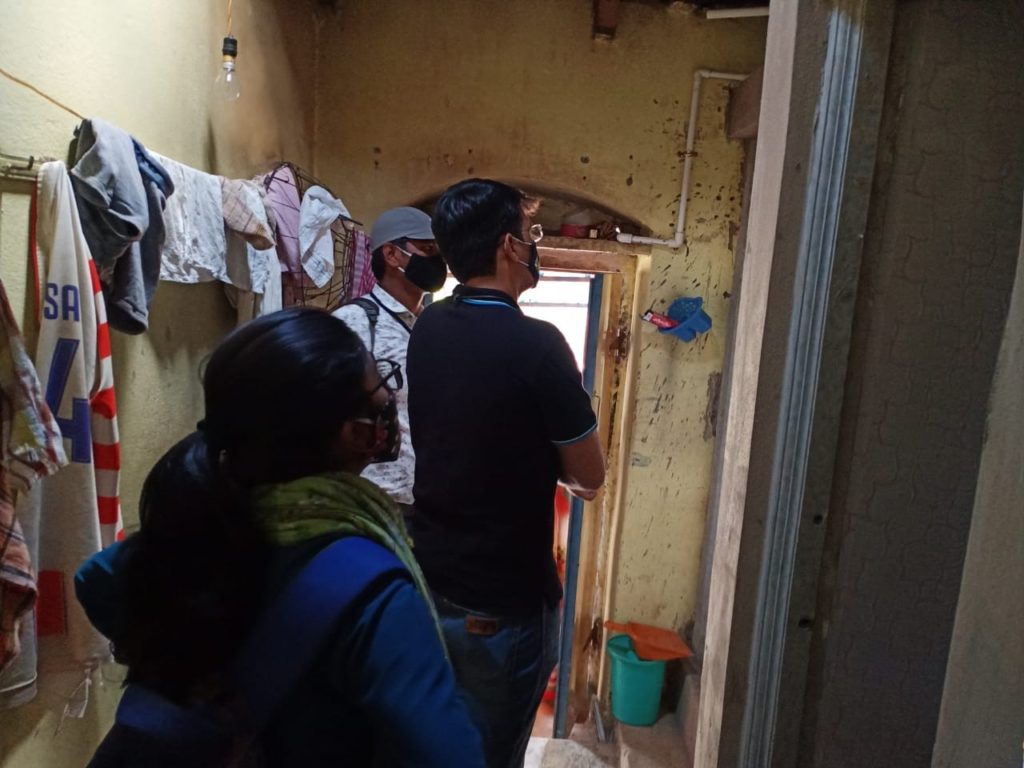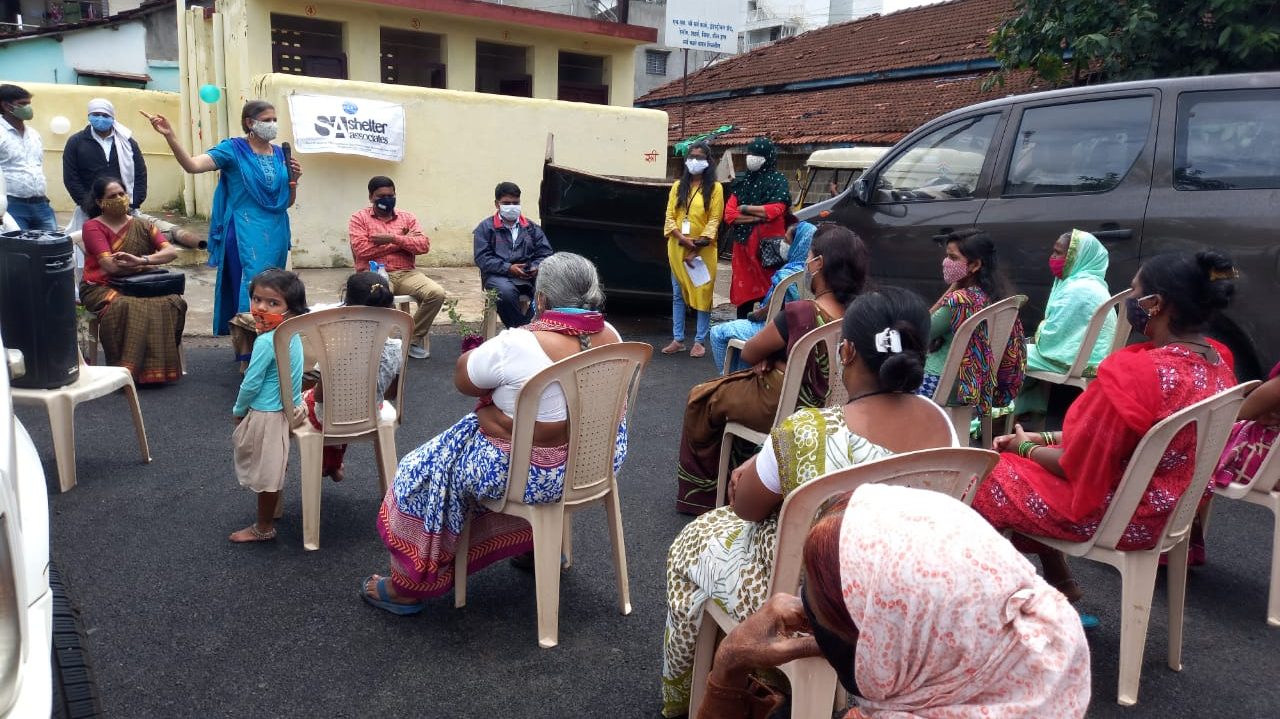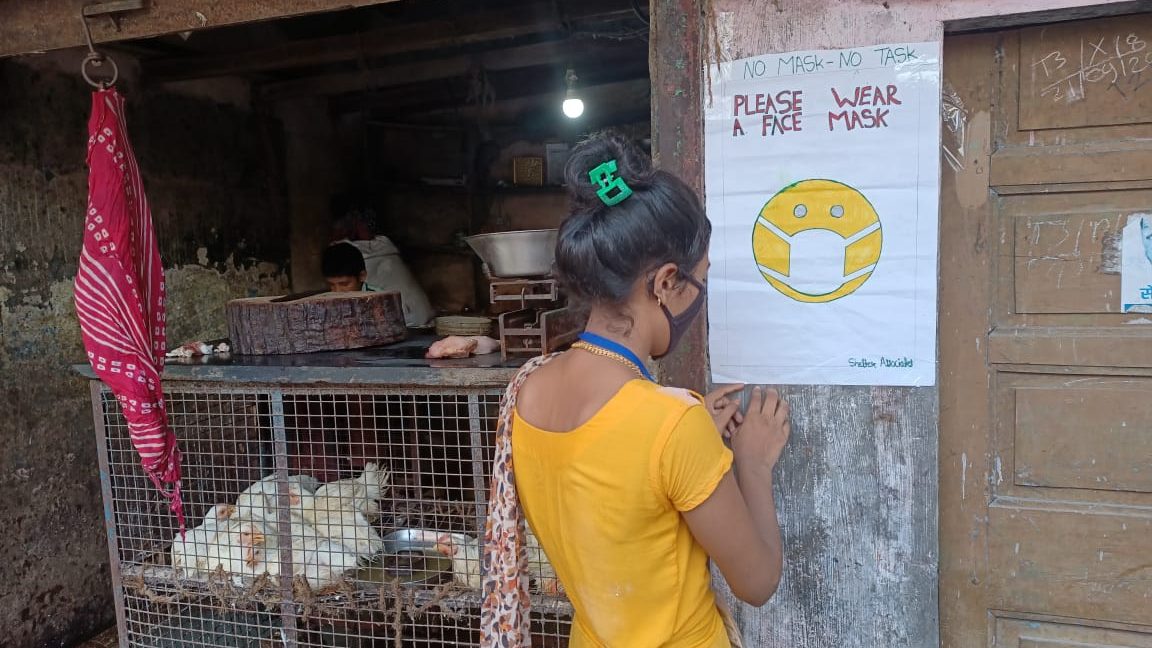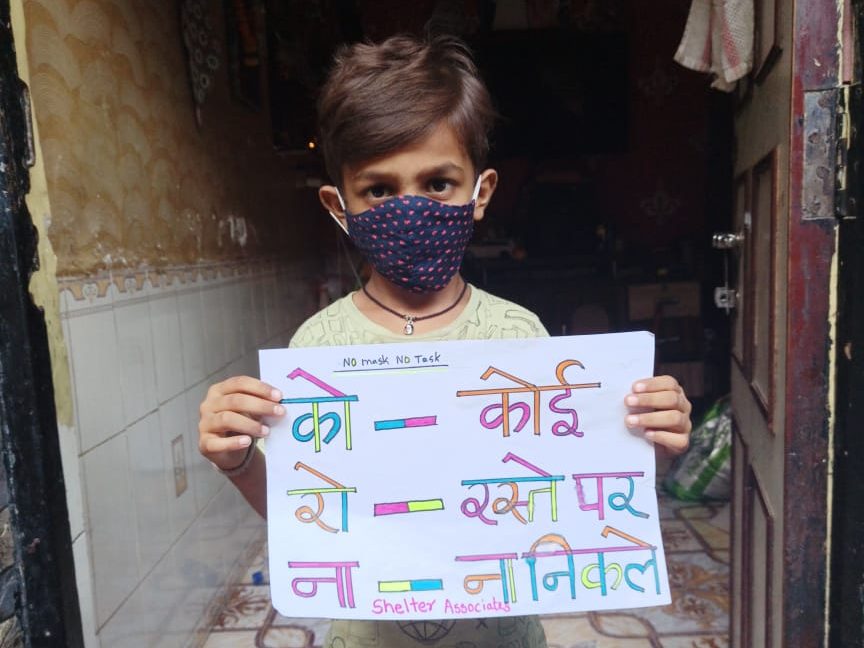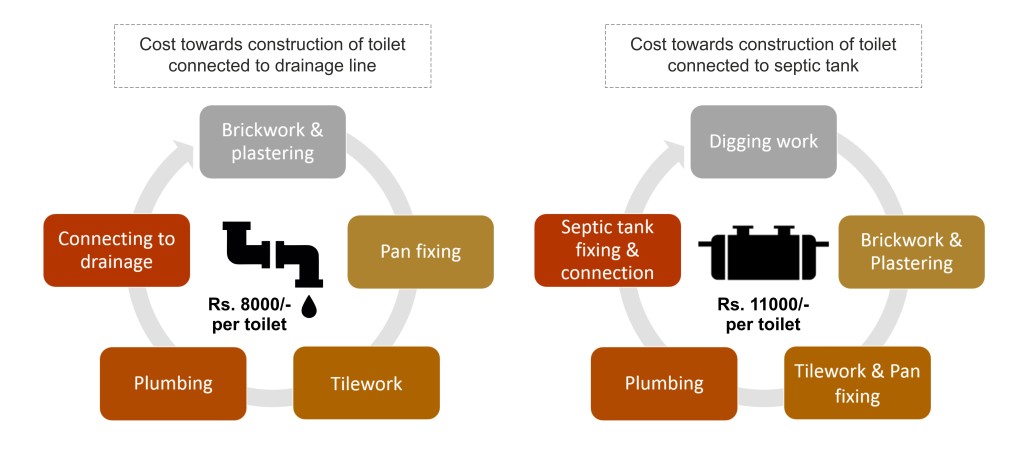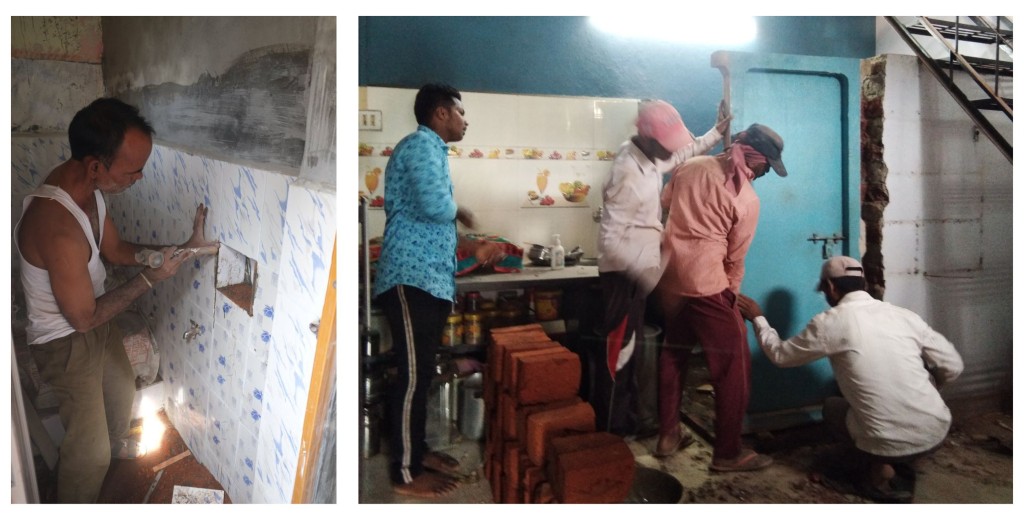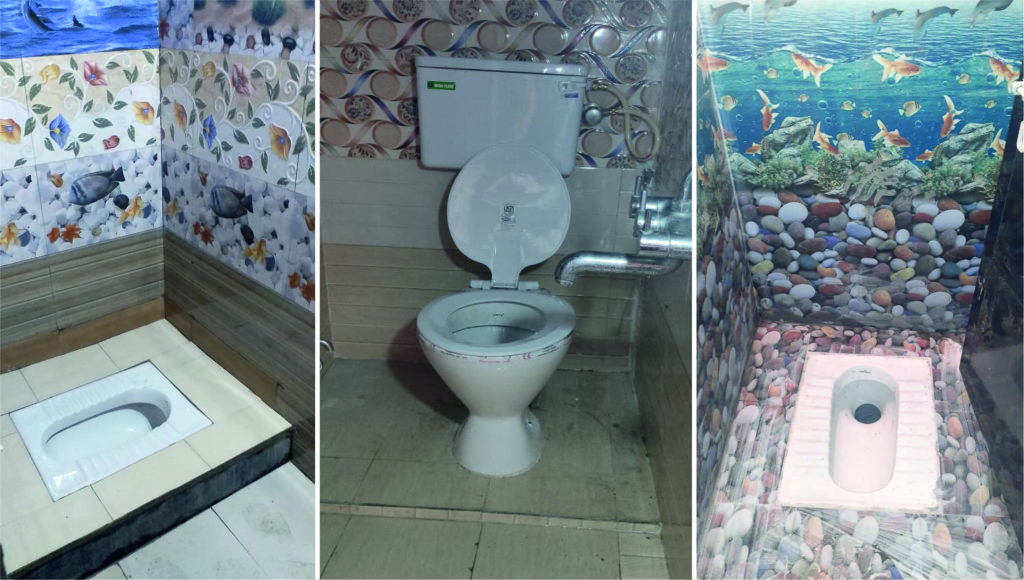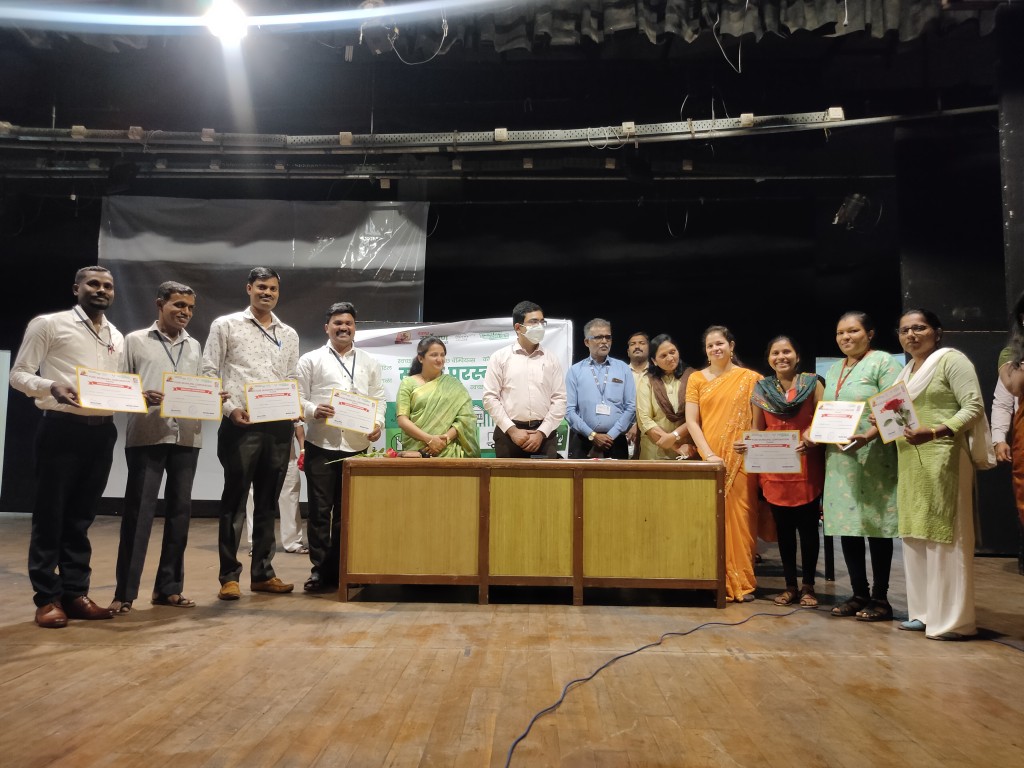मासिक पाळी हा शब्दच चारचौघात महिला-मुलीनी उच्चारणे म्हणजे महापाप असा अलिखित नियम समाजात रूढ असताना एखाद्या पुरुषाने मासिक पाळी बद्दल चारचौघात बोलणे तर दुरापास्तच. समाजात आज सुद्धा स्त्रीच्या मासिक पाळी संदर्भात अनेक गैरसमज व अंधश्रद्धा आहेत. काही दिवसांपूर्वी घडलेल्या एका घटनेचा इथे आवर्जून उल्लेख केला पाहिजे खरतर त्या आठवणीने सुद्धा अस्वस्थ व्हायला होते. बहिणीला आलेल्या मासिक पाळी बद्दल गैरसमज करून घेतल्याने भावाने बहिणीचा जीव घेतला. अज्ञान माणसाला किती खोल गर्तेत घेऊन जाते हे या घटनेवरून स्पष्ट होते. देवाचा कोप या संकल्पने पासून सुरु झालेली अंधश्रद्धा शरीर संबंध झाल्याने रक्तस्त्राव होतोय असे समजून पाळी आलेल्या मुलीचा जीव जाई पर्यंत असू शकते. आजही बऱ्याच धर्मांमध्ये स्त्रीला मासिक पाळीच्या काळात अपवित्र मानलं जातं. आधुनिक वैज्ञानिक युगा मध्ये आजही मासिक पाळी संदर्भात समाजात इतकी अंधश्रद्धा का आहे याचा विविध अनुषंगाने विचार होणे आवश्यक आहे.
वस्ती पातळीवर महिलांसाठी मासिक पाळी या विषयावर संवाद साधणे हे तर मोठे कौशल्याचे काम. सामूहिक सभेत संवाद साधताना एक महत्वाची गोष्ट लक्षात आली ती म्हणजे महिला आणि मुलींना अजूनही स्त्रीच्या शारीरिक रचने बद्दल पूर्ण माहिती असतेच असे नाही किंबहुना तशी माहिती मिळवण्याचा प्रयत्न करणाऱ्यांचे प्रमाण देखील कमी आहे. जसे कान-नाक-डोळे-हात-पाय हे शरीराचे अवयव आहेत तसेच इतर भागांचा समावेश देखील अवयव म्हणूनच होतो या बद्दलच मुख्यतः अनभिज्ञता आहे. मासिक पाळी म्हणजे काहीतरी नवी समस्या, त्रास असून हा संभ्रम अगदी आयुष्यभर जोपासला जातो. महिलांची स्वतःच्या शरीराबाद्दलची गत जर अशी असेल तर मासिक पाळी समजुती बद्दलची पुरुषांची स्थिती किती बिकट असेल याचा विचार न केलेलाच बरा. आज पर्यंत पुरुषांनी या बाबत जास्त माहिती न घेतल्याने स्त्रियांच्या मासिक पाळी बद्दल पुरुषांच्या मनात अनेक गैरसमज आहेत. तसेच याबाबतचे किती आणि कोणते स्त्रोत पुरुषांपर्यंत माहिती घेऊन पोहचले आहेत हे जाणून घेणे देखील तितकेच महत्वाचे वाटले. आणि यातूनच वस्ती मधील पुरुषांसोबत आणि वयात येणाऱ्या तरुण मुलां बरोबर मासिक पाळी संदर्भात संवाद साधायचे आणि नक्की या मुलांच्या डोक्यात या विषयी काय चालू आहे हे शोधायचे ठरले.

पुण्यातील वस्त्यांमध्ये यासाठी संवाद साधण्यास सुरवात केली. या विषयावर महिला, मुलींसोबत चर्चा करणे हे तरुणमुले व पुरुषांसोबत चर्चा करण्यापेक्षा सोपे असते. त्यांच्याशी संवाद साधताना मुळातच सुरवात कोठून करायची असा प्रश्न असतो. चर्चेसाठी खूप औपचारिक वातावरण तयार केले तर बहुतेकवेळा तरुण चर्चेला थांबतच नाहीत, मग अनुभव सांगणे हे तर फारच दूर. म्हणून शक्य तितके अनौपचारिक वातावरण तयार करून त्यांच्या सोबत चर्चा घडवण्यात आली. मासिक पाळी म्हणजे काय? याविषयी एकतर पुरुषांनी आपसात उघडपणे चर्चा करणे अत्यंत अवघड आहे. सहाजिकच या विषयावर तरुणांशी संवाद साधायला सुरुवात केल्यावर पहिली प्रतिक्रिया आली “ अहो सर आपण दुसऱ्या विषयावर बोलूयात ” . जी तरुणमुले शाळा आणि महाविद्यालयात शिकत आहेत त्यांना सुद्धा स्त्रीला मासिक पाळी का येते याची शास्त्रीय माहिती नसते. बायकांच्या पोटात प्रत्येक महिन्याला काही तरी तयार होतं आणि ते सर्व घाणीच्या स्वरूपात प्रत्येक महिन्याला शरीरा बाहेर पडत असत. यातूनच शरीरातील अशुद्ध/ दूषित रक्त शरीरा बाहेर पडत ही भ्रामक कल्पना पुढे आली.
चर्चे दरम्यान तरुणांना मासिक पाळी संदर्भात माहिती मिळण्याचे स्त्रोत काय आहेत हे शोधण्याची उत्सुकता शिगेला पोहोचली होती. त्यांच्या बरोबर संवाद साधताना तुम्हाला शाळेत अथवा महाविद्यालयात मासिक पाळी आरोग्याबद्दल माहिती देत असतील ना? असा प्रश्न विचारल्यावर तरुणांकडून आलेले उत्तर मात्र पूर्णपणे बुचकळ्यात टाकणारे होते. शाळेत अथवा महाविद्यालयात वैयक्तिक आरोग्या संबंधी माहिती दिली जाते, परंतु त्यामध्ये मुलांना स्त्रीच्या मासिक पाळी वैगरे संबंधी काहीही माहिती दिली जात नाही. मुलींसाठी वेगळे माहिती सत्र असल्याने त्यांना कदाचित ही माहिती देण्यात येत असावी असे मत बहुतेक तरुणानी व्यक्त केले. शैक्षणिक संस्थेतच ही माहिती तरुणांना देणे टाळले जात असेल तर स्त्रीच्या मासिक पाळी आणि आरोग्या संबंधी जागरूकता कशी निर्माण होणार? मूळ स्त्रोताकडून माहिती देणे नाकारले गेल्याने मुले त्यांच्या शालेय जीवनापासून माहिती मिळविण्याच्या उत्सुकतेपोटी विविध स्त्रोत शोधण्यास सुरवात करतात. हे स्त्रोत अचूक आणि शास्त्रीय दृष्टीकोनातून माहिती देणारे असतातच असे नाही. या उलट काहीवेळा मुलांच्या मनात जास्तच गोंधळ निर्माण होतो परिणामी त्याचे रूपांतर अशास्त्रीय दृष्टीकोनातं होऊन हिंसात्मक कृत्यांचा जन्म होतो.

मासिक पाळी सुरु होण्याचे वय या संदर्भात सुद्धा वस्तीमधील युवकांना माहिती नसल्याचे निदर्शनास आले. अठराव्या वर्षी मुलीचे रूपांतर बाई मध्ये होते म्हणून मुलींना मासिक पाळी वयाच्या अठराव्या वर्षी येते असे बहुतेक युवकांचे मत होते. पाळी म्हणजे काहीतरी घाणेरडा प्रकार असतो कारण तेव्हा शरीरातील दूषित रक्त बाहेर टाकले जाते आणि त्यामुळे खूप आजार पसरू शकतात असाही गैरसमज असतो. पोटामध्ये महिनाभर दूषित रक्त जमा होते आणि मग महिन्याभराने ते शरीरा बाहेर टाकले जाते आणि ते बाहेर जाणेच चांगले कारण त्यामुळे शरीरातील रक्त शुद्ध होते…अशा कित्येक भ्रामक कल्पना आहेत. खरे पाहता योग्य वेळी या संदर्भात मार्गदर्शन मिळाले तर असा गैरसमज होण्याची वेळच येणार नाही. घरामध्ये आईची किंवा बहिणीची होणारी चिडचिड समजू शकली नाही याचे कारण घरामध्ये कधीही मासिक पाळी आणि त्या वेळेची स्त्रियांची मानसिक स्थिती या विषयी कधीच बोलले गेले नसल्याचे युवकांनी सांगितले.
खरंतर पौंगडावस्थेत मुला-मुलींमध्ये होणारे शारीरिक बदल, आरोग्य, मासिक पाळी, त्यासाठी घ्यावयाची काळजी, स्वच्छता या सर्व मुद्यांवर मुलांबरोबर घरगुती पातळीवर मोकळेपणाने चर्चा होणे महत्वाचे व गरजेचे आहे . परंतु बरेचदा पालकांना याचे महत्व कळत नाही किंवा हा विषय चर्चा करण्यासारखा आहे असे देखील त्यांना वाटत नाही. वस्तीपातळीवर तर पालक घरामध्ये सर्वाना दोनवेळेचे जेवण मिळेल किंवा नाही अशा सारख्या प्रश्नात गुंतलेले असतात. म्हणजेच या प्रश्नावर सामाजिक आणि आर्थिक परिस्थितीचा देखील प्रभाव पडत असतो.

योग्य स्त्रोतांद्वारे माहिती न मिळाल्याने साहजिकच उत्सुकतेपोटी तरुण अयोग्य स्त्रोतांच्या मार्गाने माहिती मिळवितात, जी त्यांच्या मानसिक आणि शारीरिक विकासासाठी घातक ठरू शकते. अश्लील साहित्य, ऐकीव माहिती हे त्यामधील प्रमुख स्त्रोत असल्याचे या युवकांकडून समजले. बऱ्याच वेळा तरुणांना त्यांच्या प्रेयसीकडून काही प्रमाणात माहिती समजते असे सुद्धा काही तरुणांनी सांगितले. परंतु प्रेयसीकडून समजलेली माहिती कितपत अचूक आहे या बद्दलही साशंकता आहे. कारण अजूनही शहरी वस्त्यांमध्ये स्त्रीच्या मासिक पाळी संदर्भात अंधश्रद्धा आहेत. महिलांसोबत शारीरिक आरोग्य, मासिक पाळी अशा विषयावर काम करणाऱ्या खंडीभर संस्था सध्या समाजात कार्यरत आहेत. पुण्यातील वस्त्यांमध्ये देखील विविध सामाजिक संस्था याप्रकारचे कार्य करत आहेत. तसेच शासकीय पातळीवर देखील कार्यक्रम राबविले जातात . परंतु तरीही आजपर्यंत मासिक पाळी आणि स्त्रीचे शारीरिक आरोग्य या संबंधी मोठ्याप्रमाणावर अंधश्रद्धा आणि गैरसमज आहेत याची जाणीव काम करताना होत आहे . शासकीय व सामाजिक संस्थां शास्त्रीय दृष्टिकोन विकसित करण्यात का कमी पडत आहेत हा एक महत्वाचा प्रश्नच आहे. वैयक्तिक आरोग्य आणि मासिक पाळी याविषयां संबंधी महिलांप्रमाणेच पुरुषां सोबत बरोबरीने काम व्हायला पाहिजे पण ते का होत नाही असे प्रश्न अनुत्तरीतच आहेत. मासिक पाळी व आरोग्य नियोजनामध्ये पुरुषांचा सहभाग असणे अत्यंत जरुरीचे असून याबाबत काम होणे आवश्यक आहे. आज पर्यंत केवळ कुतूहलापोटी तरी किती पुरुषांनी सॅनिटरी पॅड हातामध्ये घेऊन पहिला असेल का याबद्दलही प्रश्नच आहे…

– मंगेश कदम, Mobilization Training Manager (शेल्टर ससोसिएट्स)
मंगेशचा व्यावसायिक समाजकार्य आणि विकास क्षेत्रातील १० पेक्षा जास्त वर्षांचा अनुभव. पत्रकारिता मधील बॅचलर पदवी, व्यावसायिक समाज कार्यातील मास्टर पदवी, तत्वज्ञानातील मास्टर पदवी, तत्वज्ञानातील डॉक्टर पदवी (सुरू आहे).
